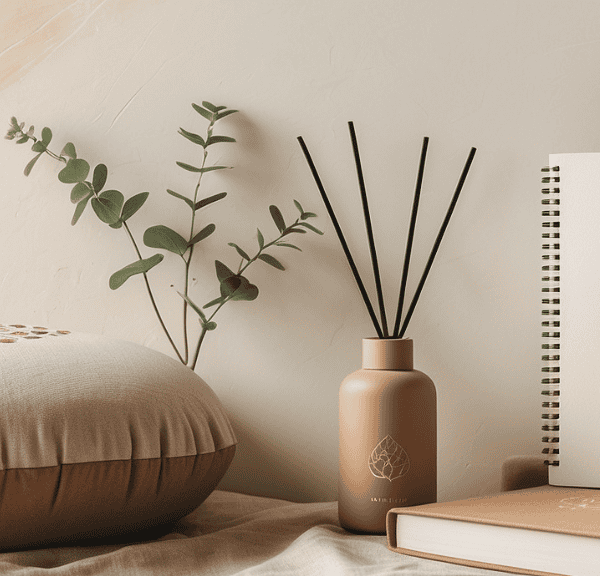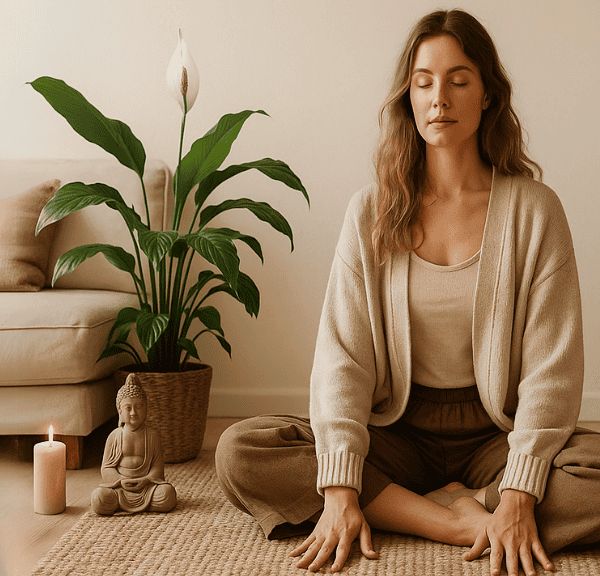
Self-Care for Women: Your Essential Beginner’s Guide
Table of Contents
This post may contain some affiliate links. I only recommend products and services I genuinely believe in. Additionally, some content on this website may have been created with the assistance of AI.
What is Self-Care and Why Does it Matter?
Welcome to the ultimate beginner’s guide to self-care, a guide that is specifically designed for women like you. In a world that is constantly moving, it is crucial to look after yourself for your own happiness. As women, we often prioritize others and forget about our own needs. But remember, taking care of yourself is not selfish. It is a vital step towards maintaining your health, both in body and mind.
Over the years, I have come to realize the profound transformation that can occur when one prioritizes their self-care. It is a journey that is deeply connected to our well-being and happiness, offering a beacon of hope and possibility.
That’s why I’ve crafted this guide, packed with practical tips and strategies for self-care, specifically designed to empower women. Whether you’re a busy professional, a multitasking mom, or simply someone seeking more health and happiness, this guide is a perfect starting point to understand the power of self-care and how to integrate it into your daily routine.
We’ll talk about all kinds of self-care. That includes keeping fit, feeling good mentally, and ensuring you’re emotionally and spiritually happy.
So, take a little break, pour yourself some tea, and start exploring how self-care can transform your life.
Key Takeaways
- Self-care is vital for women’s overall well-being and happiness.
- This guide offers real-life advice for adding self-care into your routine.
- Self-care involves looking after your body, mind, emotions, and spirit.
- Making self-care a priority can lessen stress, improve relationships, and uplift your life.
- Always be kind and consistent with yourself on this journey of self-care.
Prioritize Yourself: Why Self-Care is Key to a Balanced Life
Welcome to this guide on well-being and self-nurturing specifically designed for women. Today, we’ll dive into why prioritizing your needs is so crucial. It’s easy to get overwhelmed by responsibilities and forget the importance of self-worth and self-esteem.
We’ll explore how consistent well-being practices can bring incredible benefits to your overall life. My goal is to offer you practical, easy-to-use tips and strategies to enhance your sense of self and create a more balanced and joyful life.
In today’s fast-paced world, chronic stress is especially pervasive for women. Juggling work responsibilities, family demands, and societal pressures can take a significant toll. Self-care offers a proactive approach to dealing with increased stress. By intentionally prioritizing activities that nourish your mind, body, and spirit, you build resilience and create a buffer against the negative effects of stress. Self-care empowers you to manage stress effectively, promoting greater well-being and a more fulfilling life.
Defining Self-care and Its Importance for Women
Let’s define what taking care of yourself means, and why it’s especially important for women. This encompasses actions that support your physical, mental, emotional, and spiritual health. It’s about making intentional choices that nurture your well-being, allowing you to rest, manage stress, and live a more balanced life. Women often juggle many responsibilities, making prioritizing time for themselves even more crucial.
Unfortunately, self-care is often misunderstood as selfish or indulgent. This misconception is harmful because it perpetuates the idea that women should put everyone else’s needs before their own. This can lead to neglect of their mental health and overall well-being.We can change this misconception by emphasizing the importance of self-care for maintaining a healthy life. Prioritizing self-care helps women avoid burnout, fosters better mental health, and allows them to show up for their loved ones in a more balanced and supportive way.
The Benefits of Practicing Self-care Regularly
Consistent well-being practices offer women a multitude of benefits, as shown by the benefits of self-care. They can boost your mood, cultivate resilience and self-esteem, and equip you to handle challenges with greater ease. Prioritizing your well-being also reduces stress, supporting your mental and emotional health.
Mindfulness and meditation are powerful tools for managing daily stressors. Taking care of your physical self through exercise, balanced nutrition, and quality sleep increases your energy, making you feel more present and vibrant.
Emotionally, nurturing yourself fosters self-compassion, self-acceptance, and positive inner dialogue. It allows you to prioritize your needs and establish healthy boundaries, leading to stronger relationships and increased self-respect. Finally, attending to your well-being connects you more deeply with your values, adding meaning and a sense of fulfillment to your life.

Understanding Self-Care
Taking care of yourself holistically – body, mind, emotions, and spirit – is the key to a balanced, happy life. This means intentionally choosing actions that nurture all parts of who you are as explained in what self-care is and what it isn’t.
Self-care covers many areas of your well-being. Here are its different parts:
- Physical self-care: This includes exercise, eating well, sleeping enough, prioritizing physical health, and relaxing.
- Mental self-care: It’s about mindfulness, living in the present, handling stress, setting limits, and brain-challenging activities.
- Emotional self-care: It means being kind to yourself, staying positive, expressing feelings well, focusing on gratitude, finding forgiveness for the past, fostering personal relationships, and getting support when necessary.
- Spiritual self-care: This involves connecting with your higher self, beliefs, and values, praying or journaling, personal growth, seeking faith for one’s future, and finding meaning and purpose in life.
Taking care of all these areas lets you care for your whole self.
Common Misconceptions About Self-Care
There are a few misunderstandings about what it means to care for yourself. Some may dismiss it as selfish or frivolous, but in reality, it’s essential for your overall health and allows you to offer your best to others.
Another misconception is that it’s a time-consuming luxury. However, even brief acts of well-being can have a powerful impact when practiced consistently.
Remember, true self-care goes beyond spa days or relaxing baths. It’s about nourishing all aspects of your being – mind, body, and spirit – not just indulging in occasional treats.
The Role of Well-Being Practices in Overall Health
Prioritizing your well-being is essential for a fulfilling life. It’s a key tool for handling stress, preventing burnout, and safeguarding your physical and mental health. By nurturing yourself, you gain energy, increase resilience, and approach life’s challenges with a more optimistic outlook.
Nurturing yourself also has a profound impact on your relationships. When you feel balanced and cared for, you naturally have more capacity for understanding and empathy towards others. This sets the stage for healthy boundaries, clear communication, and stronger connections.
Ultimately, making time for well-being practices is fundamental for true happiness. Understanding their purpose, dispelling any misconceptions, and recognizing their transformative power can have a profound impact on your life.

Physical Self-Care
Taking care of your physical health is a cornerstone of a fulfilling life. This means making choices that support your body’s needs through exercise, nourishing food, restful sleep, and relaxation techniques. These practices have positive ripple effects, benefiting both your physical and mental well-being. Investing in products that promote relaxation and well-being can enhance your self-care routine. Explore various self-care products that can help you create a spa-like experience at home, from essential oils and bath salts to massage tools and skincare items.
The Importance of Regular Exercise and Physical Activity
Exercise offers far more than just weight management. It strengthens your heart and body, boosts energy levels, and contributes to a happier mood, as highlighted by the benefits of physical activity.
Beyond these physical benefits, regular exercise promotes resilience, better equipping you to handle life’s challenges with composure. It’s also a powerful tool for combating stress and anxiety, potentially reducing your risk of chronic health conditions.
When you make exercise a priority, you’re investing in both your physical and mental health. This can lead to improved sleep and a heightened sense of overall well-being.

Nourishing Your Body With a Balanced, Healthy Diet
Fueling your body with nutritious food is a fundamental act of self-care. It directly impacts your energy levels, mood, and long-term health. A balanced, wholesome diet prioritizes vibrant whole foods that offer essential nutrients and follow established nutrition guidelines.
Focus on an abundance of colorful fruits and vegetables, whole grains, lean protein sources, and healthy fats. Staying hydrated is equally crucial – aim to drink water consistently throughout the day to support your body’s optimal functioning.
Here are some additional tips to keep in mind:
- Listen to your body: Pay attention to hunger and fullness cues.
- Plan ahead: This can help with healthier meal choices.
- Read food labels: Be mindful of added sugars, sodium, and unhealthy fats.
- Enjoy your food: Eating should be pleasurable! Savor your meals and practice mindful eating.

Prioritizing Quality Sleep and Rest
Restorative sleep is a vital pillar of overall well-being, allowing your body and mind to recharge and reset for the day ahead. To enhance your sleep quality, consider these tips:
- Consistency is Key: Aim for a consistent sleep-wake schedule, even on weekends.
- Create a Relaxing Ritual: Establish a calming pre-bed routine that signals to your body that it’s time to wind down. This could include a warm bath, gentle reading, or listening to soothing music.
- Optimize Your Sleep Environment: To promote optimal sleep conditions, ensure your bedroom is dark, quiet, and comfortably cool.
- Digital Detox: Minimize screen time (phones, computers, TV) at least an hour before bed, as the blue light can disrupt your natural sleep patterns.
- Embrace Relaxation Techniques: Try deep breathing exercises or meditation to calm your mind and prepare for restful sleep.

Embracing Relaxation Techniques: Your Pathway to Calm
Incorporating relaxation techniques into your self-care routine is a powerful way to combat stress and promote a sense of tranquility. Here are some effective ways to unwind:
- The Healing Touch of Massage: Massage therapy can soothe muscle tension, improve circulation, and offer a deeply relaxing experience for both mind and body.
- The Mind-Body Connection of Yoga: Yoga blends physical postures, controlled breathing, and mindfulness, cultivating a state of inner peace while also increasing flexibility and strength.
- The Power of Deep Breathing: Deep breathing exercises are a simple yet profound tool for calming the nervous system and reducing stress. Experiment with various techniques to find what works best for you.
These relaxation methods offer many benefits. They reduce stress, ease anxiety, promote better sleep, and enhance overall well-being.

Mental Self-Care
Caring for your mental health is equally important as your physical well-being. By engaging in practices that nurture your emotional resilience, sharpen your focus, and enhance your overall cognitive abilities, you set the stage for a thriving life.
Incorporating technology into your self-care routine can be incredibly beneficial. Various self-care apps are available to help you track your mental health, practice mindfulness, and manage stress. These tools offer guided meditations, mood tracking, and personalized self-care plans, making it easier to stay on top of your mental well-being.
Proactively supporting your mental well-being empowers you to manage stress effectively, boost your problem-solving skills, and unlock your full potential. Let’s explore strategies for cultivating a healthy and resilient mind.
The Transformative Power of Mindfulness and Meditation
Mindfulness and meditation offer profound benefits for your mental well-being, as evidenced by the benefits of mindfulness practices. For beginners, there are numerous online meditation resources available that can guide you through your journey. Mindfulness involves cultivating present-moment awareness, allowing you to observe your thoughts and feelings without judgment. This practice can significantly reduce anxiety, promote self-understanding, and enhance your overall mental health.
Meditation complements mindfulness by training your mind to focus and quiet internal chatter. Regular practice can lead to greater mental clarity, reduced stress, and improved emotional balance.
Here are some specific benefits of these practices:
- Stress Reduction: Both mindfulness and meditation can lower cortisol levels (the stress hormone).
- Improved Focus: These practices train your attention and teach you to filter out distractions
- Emotional Regulation: Gain greater control over your emotions and responses.
- Enhanced Self-Compassion: Develop a kinder and more understanding relationship with yourself.

Strategies for Managing Stress and Anxiety
Stress and anxiety can take a toll on your mental health, but there are effective ways to manage them. Start by identifying the sources of your stress. Set achievable goals, prioritize tasks, and don’t hesitate to seek support from friends or professionals.
Activities like exercise, deep breathing, and journaling can offer significant relaxation and improve your mental well-being. Experiment to find what works best for you, and make these practices a consistent part of your routine.
The Power of Boundaries: Reclaim Your Time and Energy by Saying “No”
Setting healthy boundaries is essential for mental well-being and a vital act of prioritizing yourself. Learning to confidently say “no” safeguards your valuable time and energy, helping you avoid overwhelm and burnout.
Boundaries involve defining your limits and clearly communicating your needs to others. By establishing and respecting your own boundaries, you promote self-respect, cultivate well-being, and create a more fulfilling, sustainable life.
Embracing Mental Challenges: Stimulate Your Mind and Unlock Your Potential
Just as exercise strengthens your body, engaging in mentally stimulating activities is essential for optimizing your mental health. Challenge your mind through hobbies, puzzles, continuous learning, and venturing outside your comfort zone. By keeping your brain active, you foster a sense of curiosity, promote personal growth, and enhance your overall cognitive function.
Remember, caring for your mental health is an ongoing journey requiring consistent effort. Integrating practices such as mindfulness, stress management, boundary setting, and mental stimulation lays the foundation for a thriving, resilient mind.

Emotional Self-Care
Caring for yourself extends far beyond the physical; it’s equally important to attend to your emotional well-being. Your emotions significantly influence your self-identity, relationships, and overall life experience. Joining online communities for support can be a valuable step in finding like-minded individuals who can share experiences and provide encouragement.
Prioritizing your emotional health cultivates a deep sense of inner peace, resilience, and a life filled with greater joy. Let’s explore the importance of self-compassion, positive thinking, and embracing the full spectrum of your emotions in a healthy, empowering way.
The Role of Self-Compassion and Self-Acceptance
Self-Compassion: Self-compassion means extending the same kindness, understanding, and forgiveness to yourself as you would to a cherished friend. It involves recognizing that imperfection and setbacks are a natural part of the human experience. Treat yourself with the same gentleness and support you’d offer a loved one struggling, reminding yourself that the person within you deserves care and understanding, especially during difficult times.
Self-acceptance: Self-acceptance is about embracing all aspects of who you are, both your strengths and your perceived flaws, without judgment. It means acknowledging your inherent worth and accepting yourself unconditionally. Self-acceptance fosters a sense of inner peace and allows you to approach life’s challenges with authenticity and resilience, knowing you are enough just as you are.

Cultivating a Positive Inner Dialogue and Self-Talk
The words you speak to yourself hold immense power, shaping your beliefs, emotions, and experiences. Transform your inner voice into a source of unwavering support and encouragement.
By consciously replacing criticism and negativity with affirmations of love and compassion, you rewire your brain for a more optimistic outlook on life.
As you consistently uplift yourself with positive self-talk, you cultivate unshakable confidence, tap into your inner strength, and illuminate the world around you with a brighter perspective.
Allowing Yourself to Feel and Express Emotions in a Healthy Way
Suppressing or denying your emotions can take a toll on your emotional well-being. Grant yourself the space to fully feel and acknowledge your feelings, whether joy, sadness, anger, or any other shade on the spectrum.
Explore healthy ways to express your feelings, such as journaling, engaging in creative arts, or confiding in trusted friends or a family member. By processing your emotions in a safe and supportive way, you gain valuable insights into your inner world, foster emotional resilience, and pave the way for lasting emotional health.

Seeking Support: A Sign of Strength
Remember, you don’t have to navigate your well-being journey alone. Leaning on loved ones or seeking professional mental health support demonstrates courage and a commitment to your emotional health.
Sharing your experiences with trusted friends and family can bring comfort and connection. When challenges feel overwhelming, therapists provide a safe space to explore emotions and learn valuable coping mechanisms. This empowers you to handle life’s complexities with greater ease.
Caring for your emotional health is a lifelong endeavor. Embrace self-kindness, nurture positive thinking patterns, express your emotions authentically, and don’t hesitate to seek support when needed. These practices lay the foundation for a resilient and emotionally fulfilling life.

Spiritual Self-Care
While tending to your physical and mental health is paramount, nurturing your spiritual well-being holds equal importance. Connecting with your values, purpose, and a sense of something larger than yourself can offer profound feelings of peace, belonging, and meaning in life.
Spiritual self-care transcends any specific religious doctrine and instead focuses on cultivating a deep connection with your innermost essence.
The Importance of Connecting With Your Values and Purpose
Identifying your core values and uncovering your life’s purpose act as your personal compass, guiding you toward a life of authenticity and fulfillment. When you live in alignment with your values, your decisions flow with greater ease; choices reflect your deepest convictions, and daily life feels infused with meaning and purpose.
Understanding what truly matters to you allows you to chart your own course, creating a life that resonates deeply with your soul.

Engaging in Practices That Nurture Your Spirit
Spiritual self-care offers a path to cultivate connection, meaning, and inner peace. Explore practices that resonate with you and incorporate them into your daily life:
- Prayer and Meditation: Connect with your faith or a sense of universal consciousness through prayer or meditation to deepen your spiritual connection.
- Journaling: Reflecting on your experiences, emotions, and insights through journaling fosters self-awareness and encourages personal growth.
- Time in Nature: The beauty and wonder of the natural world uplifts your spirit and restores tranquility. Immerse yourself in a peaceful walk or admire the sunset.
Energy Balancing Rituals: Explore practices such as Reiki, crystal healing, or sound therapy to cleanse your aura, promote energy flow, and restore a sense of inner balance.
Embracing Personal Growth and Self-Discovery: A Journey of Becoming
The path of self-discovery is an inspiring, lifelong adventure. Personal growth involves embracing new experiences, stepping outside one’s comfort zone, and continuously striving to become the best version of oneself.
By challenging yourself and exploring uncharted territories, you unlock hidden potential, deepen your self-understanding, and cultivate a profound sense of fulfillment as you evolve into the person you were always meant to be.
Practicing Gratitude and Finding Meaning In Daily Life
Practicing gratitude cultivates a mindset of appreciation and gratitude, shifting your focus to the abundance and blessings surrounding you, supported by the science of gratitude. This simple yet profound shift has the power to boost happiness and enhance your overall well-being.
You infuse your daily life with purpose and joy by intentionally dedicating your time to activities that align with your values and bring a sense of fulfillment. Embrace both gratitude and purpose as guideposts toward living a life filled with contentment and significance.

Integrating Self-Care into Daily Life
Making Self-Care a Priority and Creating a Self-Care Routine
In our fast-paced lives, it’s easy to let taking care of ourselves fall to the bottom of our priority lists. Yet recognizing your inherent worth is the foundation of true wellness.
Creating a consistent well-being routine is a powerful way to honor this commitment to yourself. Whether it’s a quiet morning ritual or a restful evening practice, establishing a routine anchors these practices into your life.
By carving out dedicated time for your well-being, you cultivate a deep sense of nourishment, resilience, and the ability to show up for yourself and others with greater fullness.

Overcoming Obstacles and Embracing Self-Care
Even when we understand the importance of taking care of ourselves, common obstacles like lack of time and feelings of guilt can get in the way. It’s crucial to remember that prioritizing your well-being is not an act of selfishness, but a necessity for a fulfilling life.
Let’s explore strategies for overcoming these challenges:
Time Constraints: Self-care doesn’t require hours of dedicated time each week. Integrate small acts of nurturing throughout your day. A brisk walk during your lunch break, a few minutes of mindful breathing, or a relaxing bath at the end of the day can make a significant difference.
Guilt: Many of us struggle with the notion that prioritizing our needs is somehow wrong. Challenge this belief! Remember, you cannot pour from an empty cup. By replenishing your own well-being, you become better equipped to care for others in a sustainable and fulfilling way. Treat yourself with the same compassion and understanding you would extend to a loved one.
Embracing the Journey: Discovering Practices That Nourish You
Just as each individual is unique, so too are the wellness practices that resonate most deeply. Be open to embarking on a journey of discovery, experimenting with different well-being practices and taking note of how they make you feel. For some, the rhythmic flow of yoga brings peace, while others find solace in the vibrant expression of painting.
The key is to approach this process with curiosity and openness. Pay attention to what energizes you, what brings you tranquility, and what sparks joy. By honoring your preferences and tailoring your routine, you’ll unlock the practices that truly uplift your body, mind, and spirit.

Consistency and Compassion: Keys to a Sustainable Journey
True transformation comes from consistent well-being practices that nourish your mind, body, and spirit. Remember, this is an ongoing journey, not a destination to be reached and then forgotten.
Equally important is extending compassion towards yourself. There will be days when life feels overwhelming, and your routine may slip. Instead of self-criticism, offer yourself grace and understanding. See every effort, no matter how small, as a step towards deeper self-love. Focus on steady progress rather than unattainable perfection, and you’ll thrive on your unique journey.

Embrace Self-Care, Embrace a More Fulfilling Life
Throughout this guide, we’ve explored a wide range of practices designed to nurture your physical, mental, emotional, and spiritual well-being. From journaling to spending time in nature, these simple strategies offer profound benefits.
Remember, prioritizing your well-being is not a luxury but a necessity. You deserve to dedicate time and attention to your own needs. By making these practices an integral part of your daily routine, you invest in your health, happiness, and ability to thrive in all areas of your life.
Well-being practices have the power to reduce stress, improve your mood, and enhance your overall life. When you operate from a place of inner balance, you become a more resilient, focused, and joyful version of yourself.
So why not start your journey today? Begin with small, meaningful acts that resonate with you and gradually expand your practice. Embrace well-being and watch your life blossom in ways you never imagined possible. You are worth it!
This post may contain some affiliate links. I only recommend products and services I genuinely believe in. Additionally, some content on this website may have been created with the assistance of AI.
Frequently Asked Questions
Q: What is self-care?
A: Self-care encompasses any activity or behavior that nourishes your physical, mental, emotional, and spiritual well-being. It’s about intentionally choosing practices that boost your health, happiness, and overall life balance.
Q: Why is self-care especially important for women?
A: Women often juggle multiple roles and responsibilities, making your wellness crucial for preventing burnout and managing stress. By prioritizing their needs, women cultivate greater resilience, improved health, and a more fulfilling life.
Q: What are the benefits of practicing self-care regularly?
A: Consistent self-care offers a multitude of benefits. It reduces stress, enhances energy levels, promotes better physical and mental health, strengthens relationships, and ultimately leads to increased happiness and fulfillment.
Q: How can I integrate self-care into my daily life?
A: Start by prioritizing your well-being and developing a routine that works for you. Overcome common obstacles like lack of time or feelings of guilt. Choose activities you genuinely enjoy, practice consistency, and extend compassion towards yourself along the way.
Q: What are some easy-to-implement physical self-care practices?
A: Prioritize regular exercise, nourishing meals, quality sleep, and relaxation techniques like yoga, massage, or deep breathing.
Q: How can I improve my mental well-being through self-care?
A: How can I improve my mental well-being through self-care? Consider caring for your mental health. Mindfulness practices like meditation, effective stress management techniques, the power of “no,” and engaging in mentally stimulating activities can significantly boost your mental health.
Q: What does emotional self-care look like?
A: Emotional self-care involves practicing self-compassion, embracing a positive mindset, allowing yourself to feel your emotions, and seeking support when needed. Journaling, talking to someone you trust, or professional therapy can be incredibly helpful.
Q: What does spiritual self-care entail?
A: Spiritual self-care focuses on connecting with your values, your sense of purpose, and something larger than yourself. This might include prayer, meditation, journaling, spending time in nature, exploring personal growth, practicing gratitude, and finding meaning in your daily life.
About The Author
Jahlila is a Transformational Whole Self and Wellness Lifestyle Empowerment Coach, a devoted mother, passionate writer, and a fervent advocate for holistic wellness. She is the creator of The Tri-Sync Method, a comprehensive coaching program designed to help women establish a personalized wellness and self-care lifestyle for enduring total health wellness.
Her journey has transitioned from focusing solely on health and fitness to embracing a broader mission: empowering women through holistic approaches that unite body, mind, and spirit. Jahlila is dedicated to teaching, coaching, writing, and speaking about how wellness intersects with a joyful, balanced life. Her mission is to motivate women to prioritize and achieve their wellness goals, fostering a deep connection between a vibrant lifestyle and true happiness. Ready to reclaim your vitality, achieve mental clarity, and embrace your wellness journey? Explore more at The Tri-Sync Method.Com
Don’t wait another day to start living your healthiest, happiest life. Schedule a Free Discovery Consultation with Jahlila today to explore how The Tri-Sync Method can transform your life. For additional questions or personalized guidance, please visit our Contact Page.




Leave a Reply